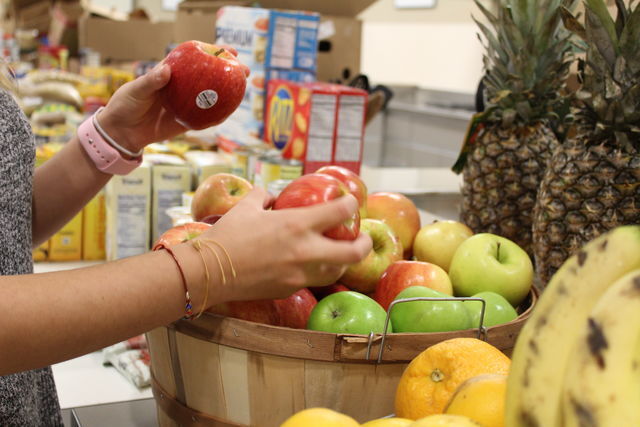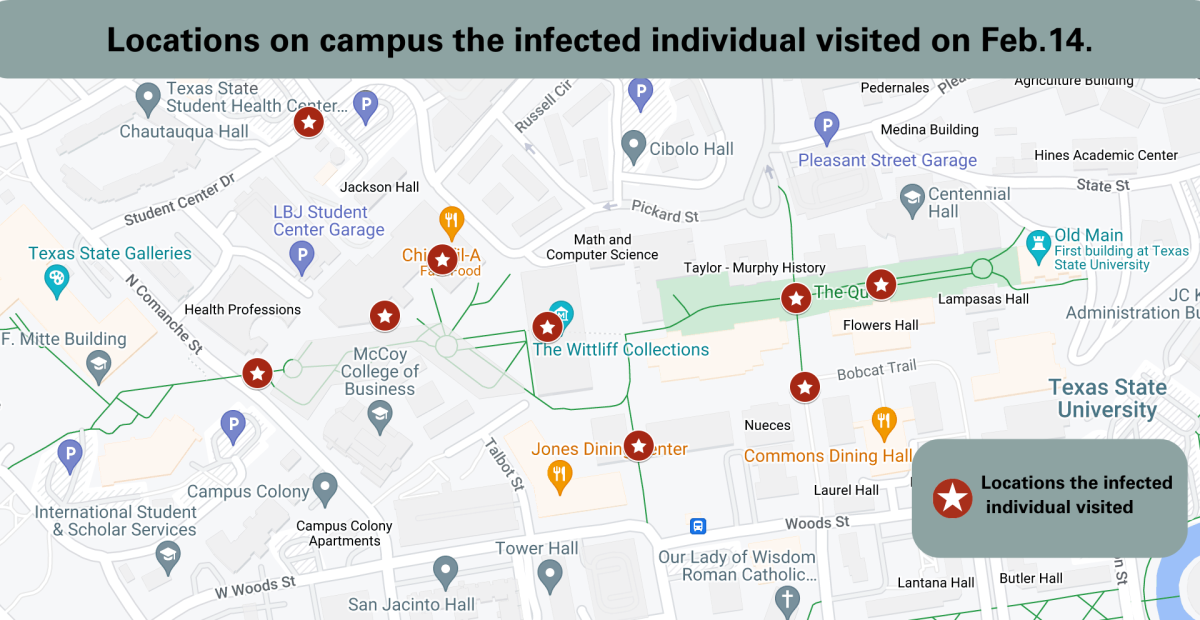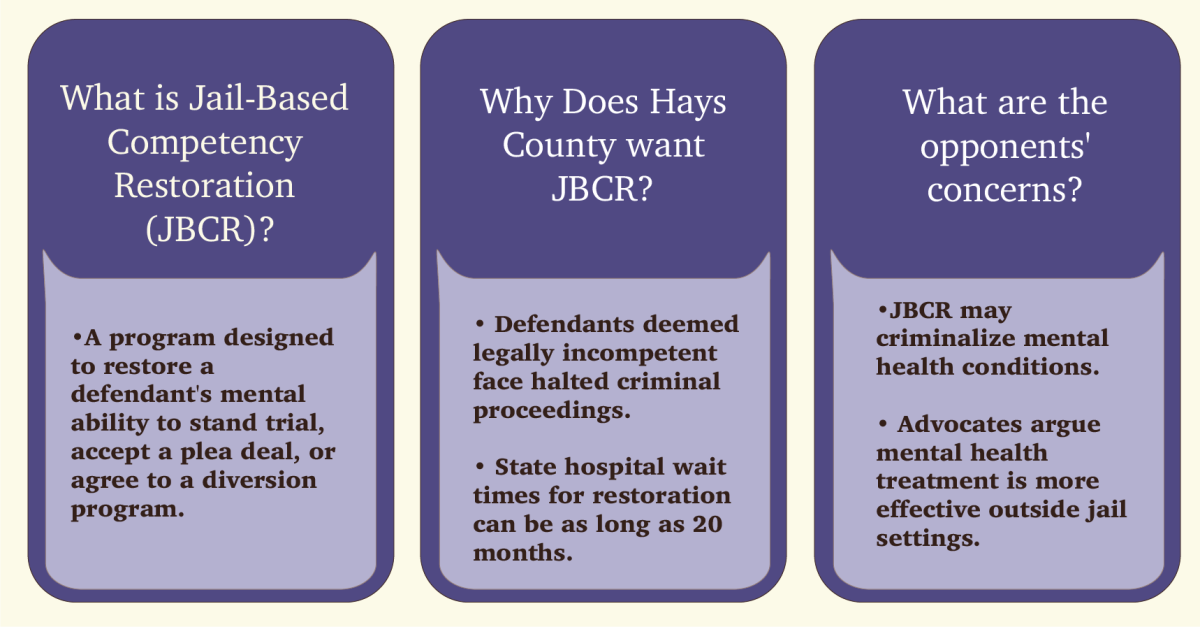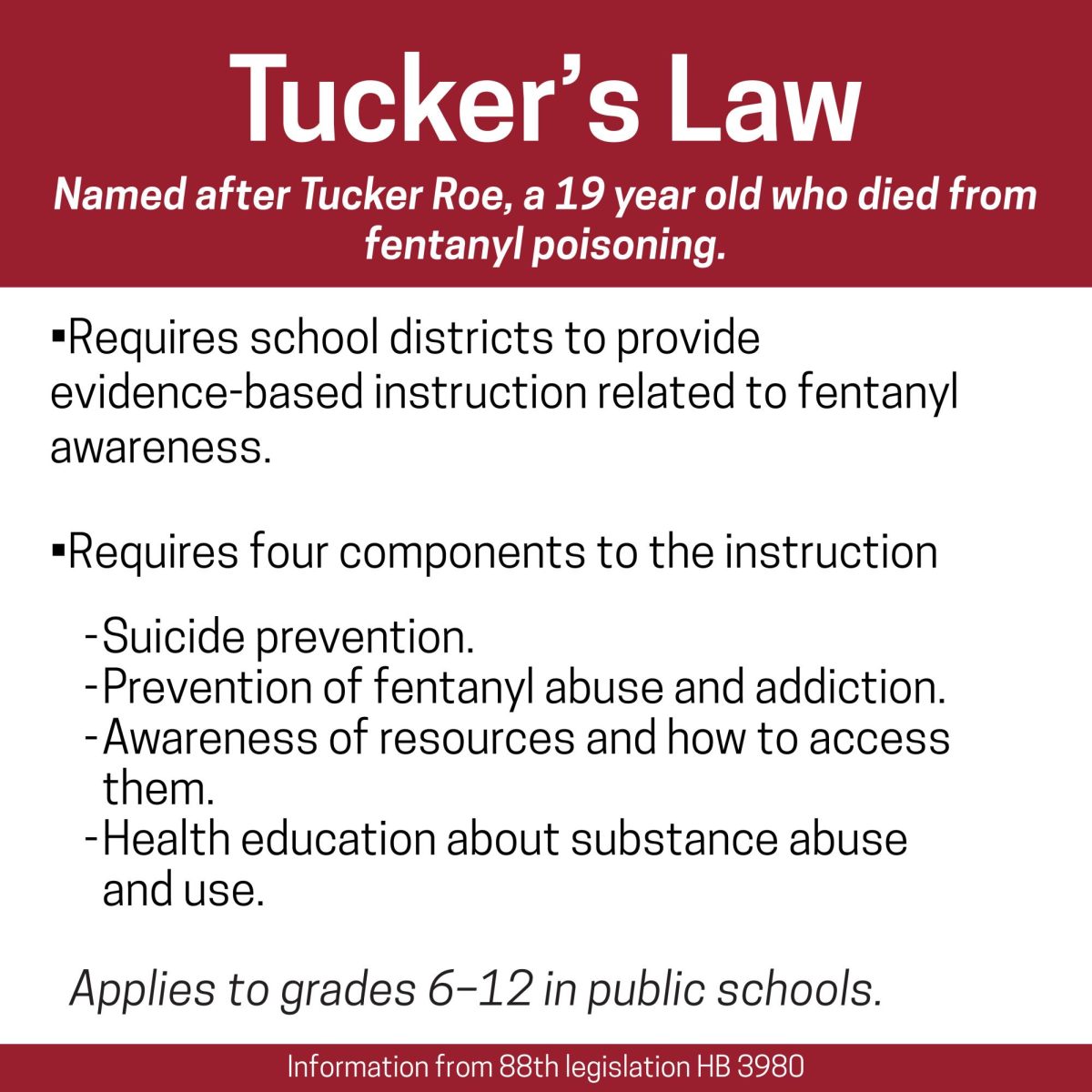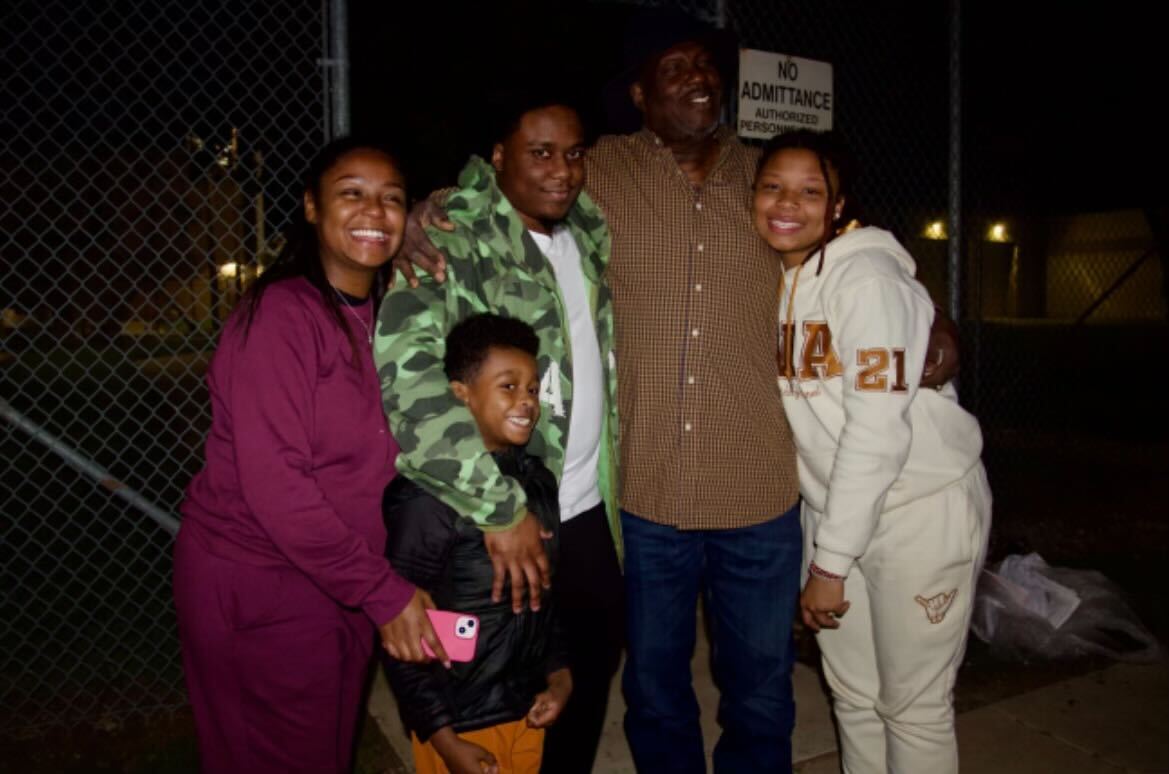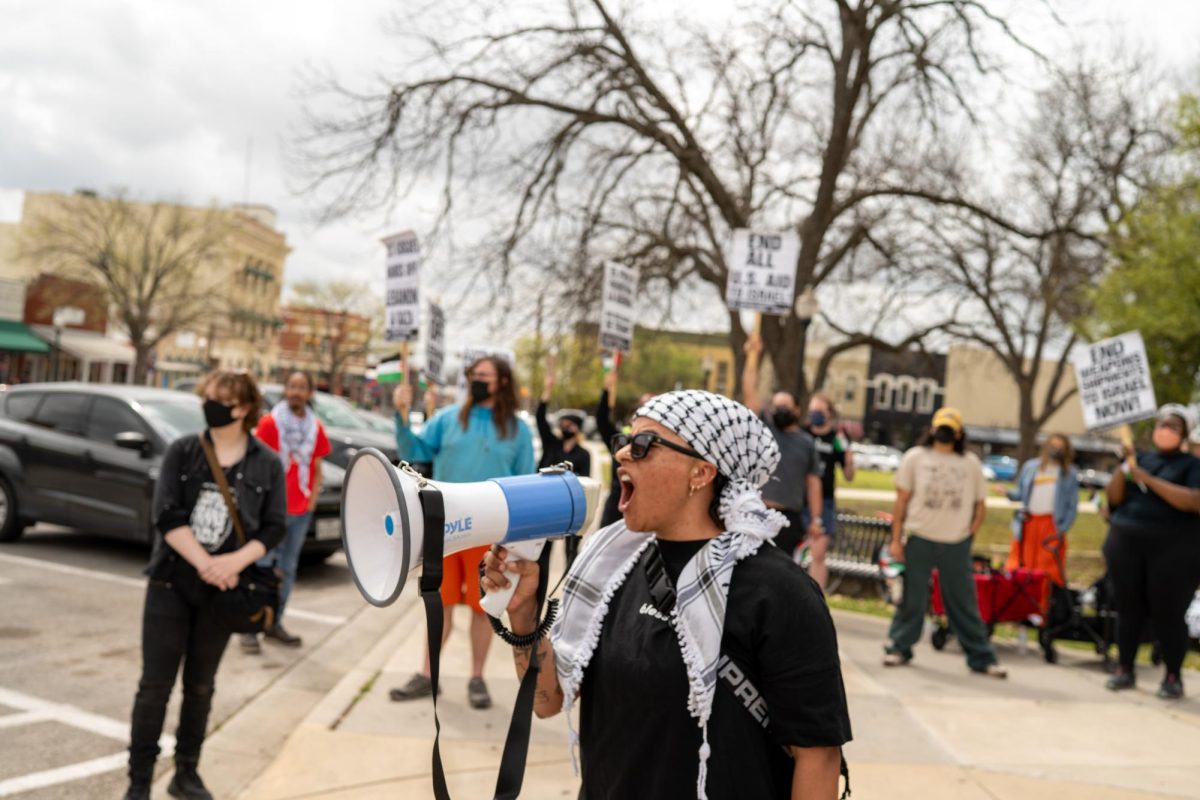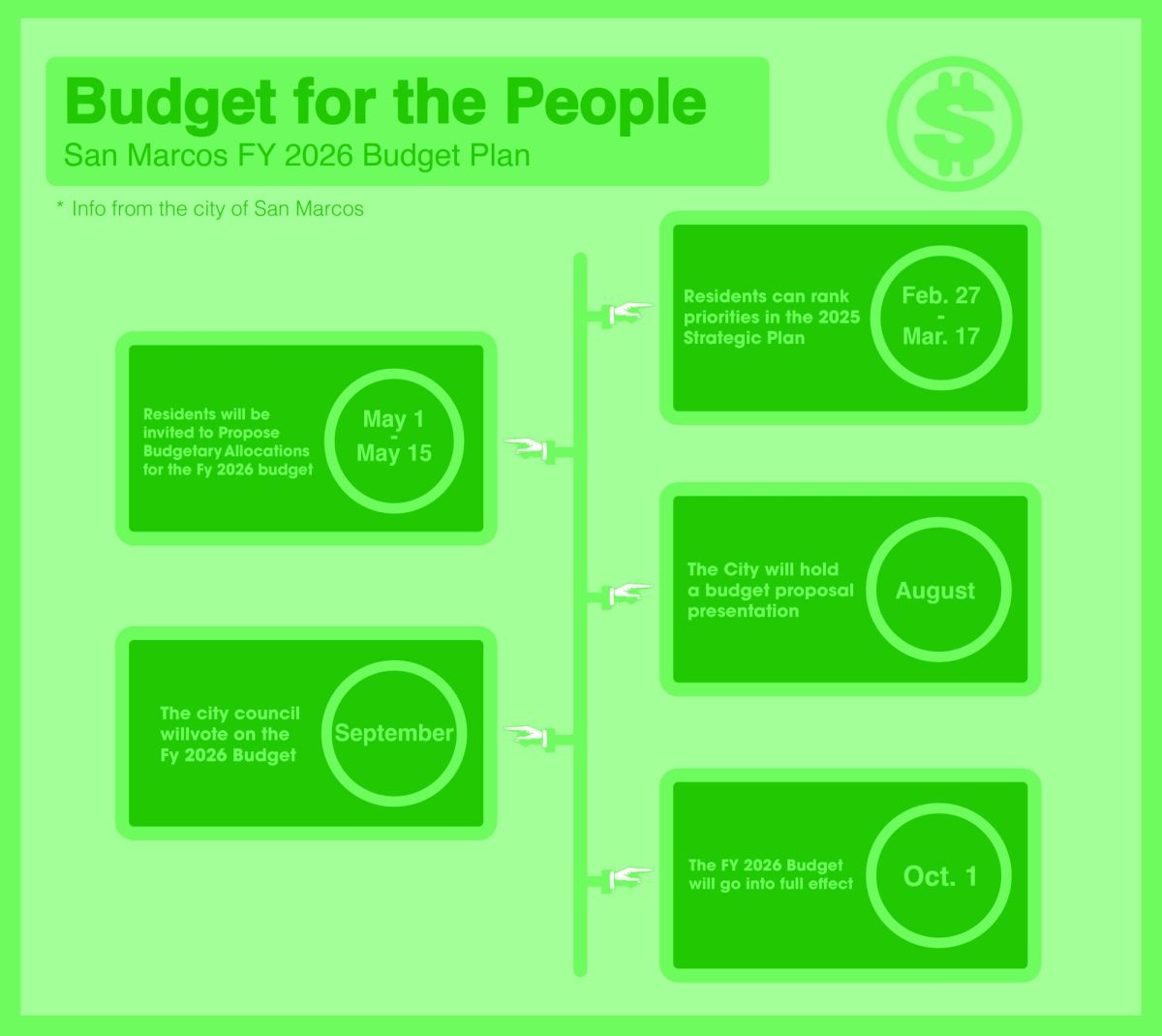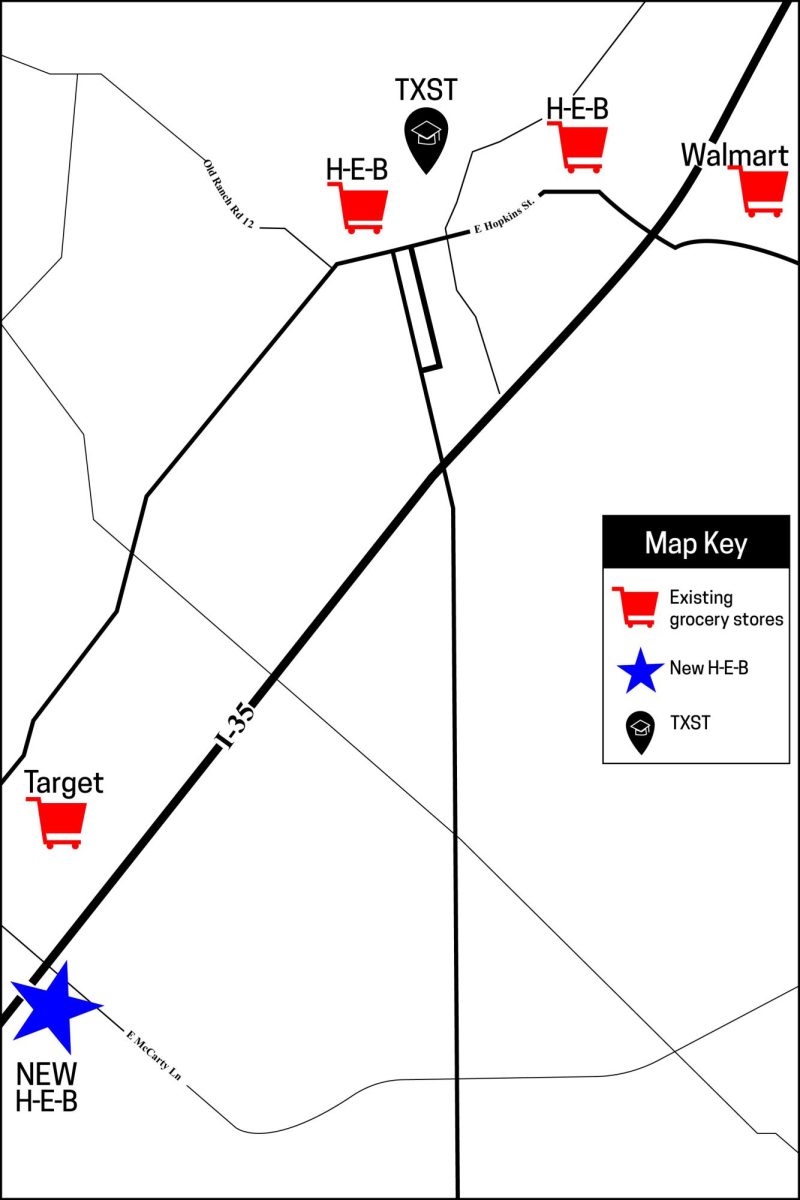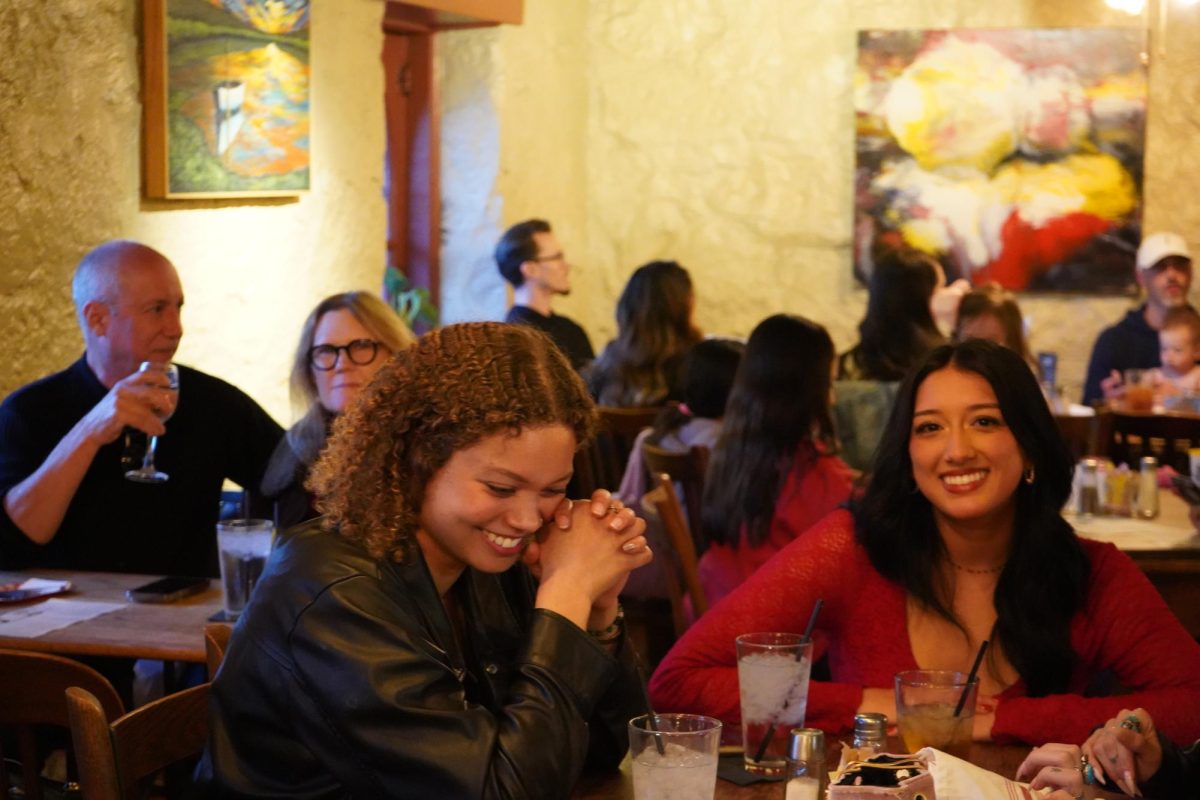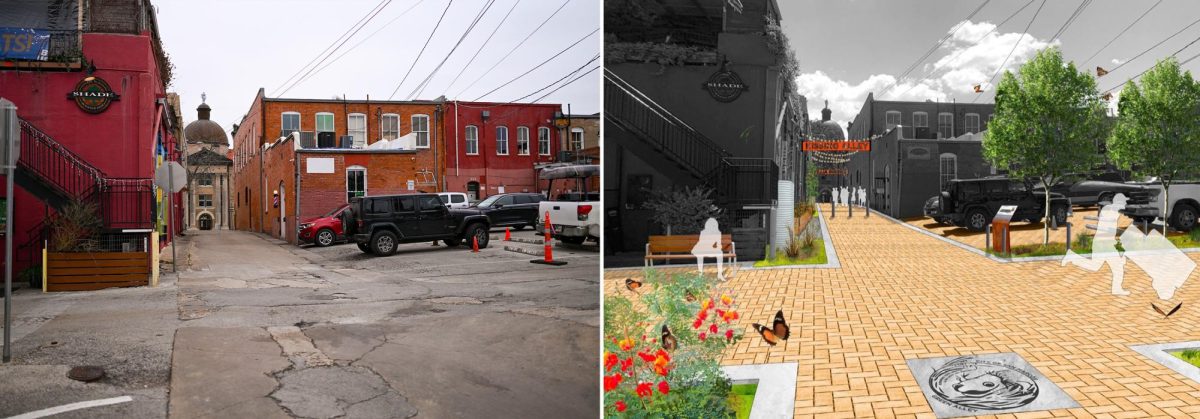As food insecurity in San Marcos continues to be a growing concern, locals and Texas State are taking action.
According to Feeding America, in 2017, 25,740 people in Hays County were considered to be food insecure—the lack of access to healthy food. This issue extends to students with 40.6% of students deemed food insecure by Texas State Dietetic interns.
Hays County Food Bank Communications Coordinator Mallory Best said San Marcos, which has a poverty percentage of 34.4% according to the United States Census Bureau, has the greatest problem with food insecurity in Hays County.
According to Best, 1,154 households residing in San Marcos were provided with food from the Hays County Food Bank’s public food distributions in 2019.
The Hays County Food Bank has been providing food for no cost to low-income families since its founding in 1984. Originally only serving the San Marcos area, the food bank has since extended its outreach and now feeds 2,555 individuals each week all over the county.
The food bank works with over 20 partnering agencies in Hays County, 11 of which are in San Marcos. These agencies host their own food distributions in addition to the Hays County Food Bank.
According to Best, more than 4,000 new households in Hays County were provided with food assistance in 2019, up from 1,400 in 2015.
“I’ve been with the organization since late 2013. Each year the need seems to grow,” Best said.
Best said there are multiple factors that can cause someone to be food insecure. These factors include homelessness, loss of a job, single-parent incomes, increased cost of living and medical conditions that leave people out of work.
“Our main priority is food assistance, but we also want to help people find other resources that they may need,” Best said. “We can help with federal assistance applications and match individuals with organizations who can fulfill other needs through our Resource Assistance Program.”
Hannah Durance is the owner of HOME Center of Central Texas, a non-profit organization that aims to prevent and address homelessness in the community. Durance said she attributes food insecurity in San Marcos to rising housing costs.
“Right now, housing costs are so high in San Marcos and wages are so low,” Durance said. “So even if someone is getting food stamps, if they’re working 40-50 hours a week they are not getting very much to supplement that, and if housing is taking all of their income, then they don’t have enough at the end of the month to afford groceries.”
Durance said housing costs are a major factor, although she also blames government assistance programs not adapting to these changes and the absence of a minimum wage increase.
“While housing costs have continued to rise, the amount that families are receiving from food stamps and other assistance programs has actually declined,” Durrance said.
According to a study done by the National Student Campaign Against Hunger and Homelessness in 2016, both students from community colleges and universities suffer from food insecurity. The study found that 25% of students from two-year colleges qualified as being food insecure compared to 20% at four-year colleges.
Texas State’s Dietetic interns analyzed food insecurity among Texas state students in 2017. The research found 40.6% of students are food insecure or do not have consistent access to healthy foods.
To solve the problem, Texas State’s student-run food bank, Bobcat Bounty, partnered with the Hays County Food Bank in 2017 to provide healthy foods to qualifying students. Although students must complete a form demonstrating their financial need, Bobcat Bounty does not require students to provide proof of eligibility.
Bobcat Bounty graduate assistant Kelsey Walling said the food bank is a way for students to adopt a more healthy lifestyle.
“As volunteer and staff members who maintain operations, we want students to experience a welcoming environment where they can receive healthful food choices and nutrition education to further encourage a healthy lifestyle,” Walling said. “In doing so, we are able to extend the reach of the Hays County Food Bank services and allow students to excel in and out of the classroom.”
In November 2019, Bobcat Bounty with the help of Texas State’s Student Government, entered talks with LBJ Student Center Director Jack Rahmann in hopes of gaining a permanent space in the newly renovated LBJ Student Center.
Walling said she is happy to confirm that Bobcat Bounty will be officially making the move.
“I am extremely excited to pass on that the food pantry will be expanding to the LBJ Student Center in the near future,” Walling said. “Plans are currently in the making for this initiative, which would further extend the benefits of Bobcat Bounty to more students on campus.”
For more information about eligibility or to volunteer visit Bobcat Bounty’s website.
Categories:
San Marcos tackles food insecurity
January 25, 2020
In this file photo, Bobcat Bounty volunteers prepare food for students and residents waiting for distributions.
0
Donate to The University Star
Your donation will support the student journalists of Texas State University. Your contribution will allow us to purchase equipment and cover our annual website hosting costs.
More to Discover



